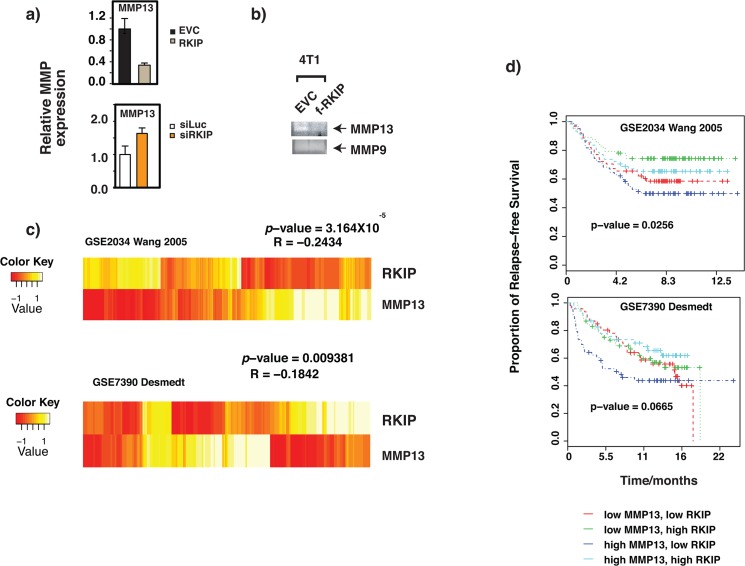Fig 2. RKIP expression negatively correlates with MMP13 levels in human breast cancer samples and the RKIP/MMP13 ratio predicts relapse-free breast cancer survival.
Increasing MMP13 followed by decreasing RKIP levels are associated with a progressive cancer disease and are hallmarks for metastasis and poor survival. (a) Relative mRNA expression of MMP13 and RKIP in MDA-MB231 cells. Actin mRNA level was used as internal control. (b) Collagen zymogram of conditioned media from RKIP-expressing or control 4T1 cells. MMP9 was used as loading control. The experiments were repeated 3X with similar results. (c) MMP13 mRNA expression is inversely correlated with RKIP expression in clinical breast cancer samples. Heat maps of RKIP, and MMP13 expression profiles obtained from studying of two publicly available DNA microarray expression datasets. Rows correspond to individual genes and columns represent individual patients. (d) High MMP13 and low RKIP mRNA levels are associated with breast cancer metastasis and bad prognosis. Kaplan Meier curves assessing the disease free survival of breast cancer patients based on RKIP and MMP13 mRNA levels obtained by publicly available DNA microarray expression datasets [28, 29]. A statistically significant decrease in relapse free survival was observed in patients with low RKIP/MMP13 expression ratios.

